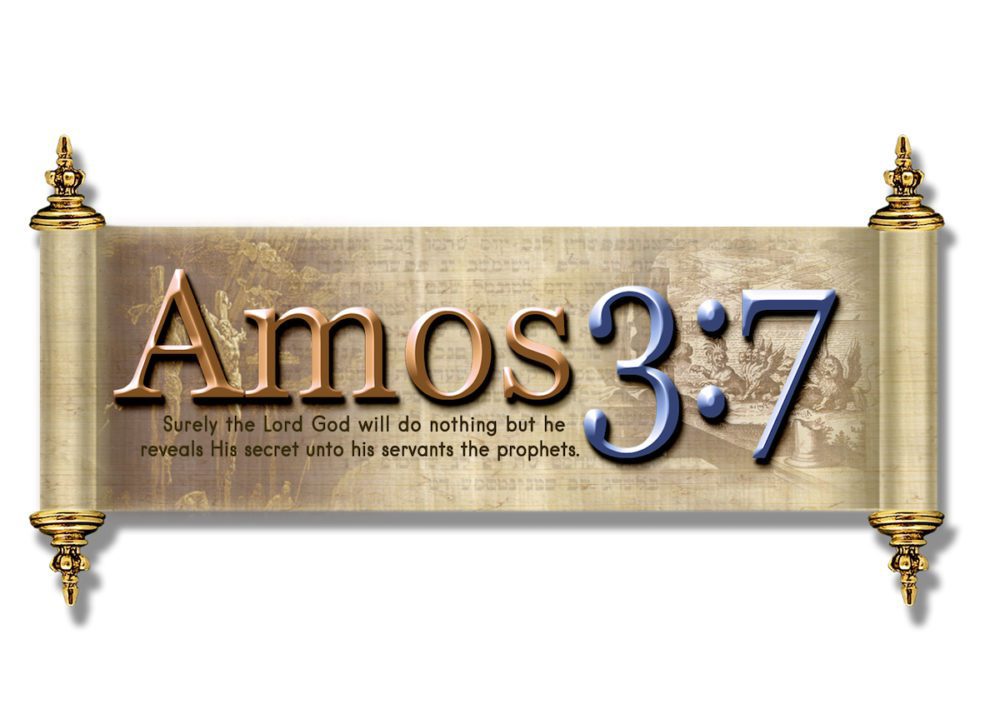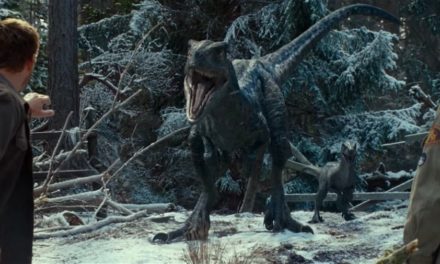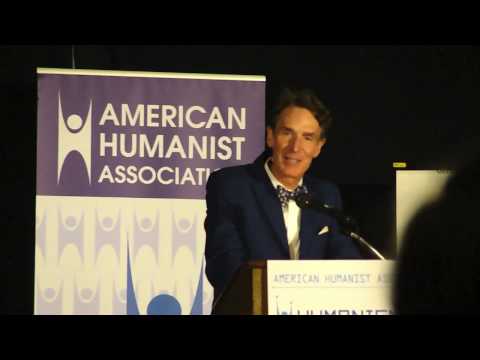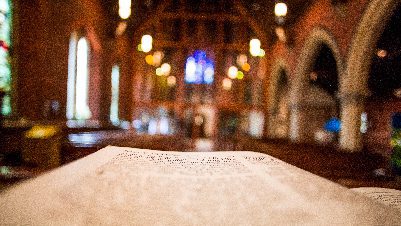
Introduction
While the earth remains, seedtime and harvest, cold and heat, summer and winter, day and night, shall not cease. (Genesis 8:22)
Today, many people (even Christians) believe that scientific (i.e., natural) laws confirm ideas like evolution. But we don’t often stop to ask fundamental questions, such as why these laws exist, where they came from, and how can we even understand them?
We often take these questions for granted (naturally as our presuppositions). Think about it: in an evolutionary/naturalistic worldview where everything in the universe is purely “matter in motion” and just an accident of the big bang, why should the physical universe obey orderly principles rather than pure chaos? And why do we depend on these laws regardless of time or location? In other words, why do we presume the laws of nature will work in the future as they have in the past?
In general, people in our culture today simply take for uniformity for granted, which is necessary for science to even work. However, it is only possible to explain uniformity in a biblical worldview. God (the eternal law-giver) promises to uphold/sustain all things in a logical fashion (Genesis 8:22) and causes them to exist by his will alone.
God’s logic is built into the universe. And that is why the universe consistently obeys natural laws and is not simply random or chaotic. And He has given us reliable senses (Genesis 1:26; Ecclesiastes 7:7; Isaiah 1:18; Hebrews 5:14) to discover and understand these natural laws. This is what makes science observable, testable, and repeatable. Without God, science would be impossible.
Now, this brings us to the laws of thermodynamics. We’re going to get a bit “science-y” here, but don’t worry! This is to help show you how incredible our God is when it comes to the laws of science.
Overview
Natural laws, such as the laws of thermodynamics, are the various names we give to the way God upholds the universe:
Long ago, at many times and in many ways, God spoke to our fathers by the prophets, but in these last days he has spoken to us by his Son, whom he appointed the heir of all things, through whom also he created the world. He is the radiance of the glory of God and the exact imprint of his nature, and he upholds the universe by the word of his power. (Hebrews 1:1–3)
For by him all things were created, in heaven and on earth, visible and invisible, whether thrones or dominions or rulers or authorities—all things were created through him and for him. And he is before all things, and in him all things hold together. (Colossians 1:16–17)
The laws of thermodynamics are among some of the most fundamental laws of the universe, created by God, to which all things must adhere.
The laws of thermodynamics are among some of the most fundamental laws of the universe, created by God, to which all things must adhere. In a nutshell, these laws describe the relationships between various forms of energy and how they affect matter. However, like any other natural law, the foundation of these laws depends on the principle of uniformity in nature (the universe being upheld in a consistent fashion) and ultimately God’s perfect will.
And please note, this uniformity is not to be confused with uniformitarianism (an anti-biblical dating concept that should be rejected). In this article, we’ll examine each of the four the laws of thermodynamics and show that these laws exist and are reliable because of biblical creation.
The Zeroth and First Law of Thermodynamics
The zeroth law (sometimes called the “fourth law,” since it was recognized after the other three laws were accepted) is the most fundamental of the four laws of thermodynamics. This law is foundational to thermodynamics since it establishes the concepts of temperature and thermal equilibrium. In summary, this law forms the basis for temperature and defines thermodynamic equilibrium as associative, where if two systems are in equilibrium with a third system, then they are in equilibrium with each other. It seems almost too basic, but nonetheless, it is vitally essential.
Similarly, the first law states that when energy passes into or out of a “system” (as work, heat, or matter), the internal energy of the system changes in accord with the law of conservation of energy. In other words, matter and energy can neither be created nor destroyed but can only be converted into one another in an isolated or closed system. This means there can never be an increase or decrease in the total energy that exists in the universe—a closed system.
Albert Einstein’s famous equation shows the relationship between matter and energy: E = mc2 (where c = speed of light). This law forms the foundation for observational science (e.g., sending rockets into space or men to the moon).
A fun, simple example of this principle is the thermodynamic process of eating roasted marshmallows at a campfire:
- The sun produces energy in the form of heat and light that travels to earth.
- Trees receive this sunlight energy and use photosynthesis to convert it to wood (matter).
- Your campfire coverts the wood (matter) back into energy (in the form of heat and light).
- The heat (energy) from the fire is transferred to your roasted marshmallow (matter).
- Your body converts the marshmallow (matter) into metabolic energy (calories) when digested.
This (very simplified) example demonstrates that the total energy in this scenario remained constant (i.e., the energy was only transformed from one form to another).
So then one may ask if matter/energy is neither created nor destroyed, then where did the total (or any) matter/energy in the universe come from, and why did it stay constant as defined by these laws? If someone elevates his/her own thoughts to supersede God and his Word and thereby refuses to believe the truth that God created everything and continues to sustain the universe by his power, then there are only two options left:
- Everything has always existed (and hence the universe is eternal) and will continue for eternity.
- Everything originally came from nothing, by nothing (e.g., the big bang), and continues to exist by unguided processes.
Option 1 is obviously self-refutable, and, in general, many secular scientists would also agree,1 since this would violate the laws of thermodynamics themselves (among a host of other problems). Option 2 is also plainly false since it’s inconsistent and scientifically impossible for nothing to create everything. Plus, this option would make uniformity in nature unreliable, which is the very thing needed for science to work. Once again, note the inconsistency.
The biblical worldview is the coherent option since the laws of conservation only make sense with the Bible, which states that God is the absolute Law-giver, both morally and scientifically, and it’s only by his will that all things hold together in accordance with his power (Job 42:1–2; Hebrews 1:3; Colossians 1:16–17; Jude 1:25). This is why the zeroth and first law are universal, invariant (will not change with time), and work everywhere in the physical universe.
From the very beginning of the Bible, we can see that God created matter (heavens/earth) and energy (light) right at creation:
In the beginning, God created the heavens and the earth. The earth was without form and void, and darkness was over the face of the deep. And the Spirit of God was hovering over the face of the waters. And God said, “Let there be light,” and there was light. (Genesis 1:1–3)
And that matter/energy is no longer being created when God declared He was finished and done:2
Thus the heavens and the earth were finished, and all the host of them. And on the seventh day God finished his work that he had done, and he rested on the seventh day from all his work that he had done. So God blessed the seventh day and made it holy, because on it God rested from all his work that he had done in creation. (Genesis 2:1–3)
So based on Scripture alone, we can have full assurance that matter/energy cannot be created or destroyed.
So based on Scripture alone, we can have full assurance that matter/energy cannot be created or destroyed. And God cannot lie (Numbers 23:19) so we can trust God when he promises to sustain everything in the universe by the word of his power (thus making observable and repeatable science possible).
This is clearly something naturalistic/materialistic atheism cannot support. Ultimately, the atheist within their worldview can never have any certainty whatsoever that the laws of conservation will not change (or even still exist) in the future. In reality, they must borrow concepts like the uniformity in nature from the biblical worldview to even use science! This proves the “atheist” is rather self-deceived and really does know God in their “heart of hearts” but refuses to give God the glory (Romans 1:21).
The Second and Third Law of Thermodynamics
Next, the second and third laws of thermodynamics both involve a concept called entropy (basically a measure of disorder). The second law states that in an isolated system the sum of the entropies of interacting thermodynamic systems never decreases and thus heat does not spontaneously pass from a colder body to a warmer body. This is why when my cold wife cuddles up next to me, she doesn’t get colder, and I get warmer, but I get colder, and she gets warmer!
The third law states the entropy of a system approaches a constant value as the temperature approaches absolute zero (the lowest limit of temperature).
These laws differ from the first two in that while energy is conserved, it becomes less useful over time, which at first glance may seem like a contradiction if we extrapolate both into the past. But because we live in a universe created by God who is transcendent over creation there is no contradiction, and hence, we can have both sets of laws operating simultaneously today. This is not a problem for an all-powerful God, but it does present yet another major problem for the naturalistic worldview.
Consequently, since entropy of an isolated system never decreases, this means the universe (as a whole) is continually “running down” and moving from order to disorder. So, as you might’ve guessed, the concept of entropy has been used in debates for quite some time (and continues to be debated) in the evolution/creation arena. This is because it leads to the discussion of how non-living things gave rise to living things, which requires an increase in order and specifically, complexity of information.
Open to Rescue?
This also casts doubt on the development of life over time, which involves increasing order required by biological evolution. However, as with any scientific evidence that is contrary to the naturalistic worldview, the evolutionist/naturalist will typically come up with a “rescuing device” (an unverifiable “excuse” to counter the argument) to save them.
In this case, the evolutionist will state that the earth is an open system since living things are continually exchanging both energy and matter with their surroundings (e.g., receiving energy from the sun). This is technically true but merely appealing to an open system is not sufficient to contradict the second and third law. Essentially, a large amount of “hand-waving” is needed to harmonize evolution’s supposed increases in biological complexity with thermodynamics.
But the real kicker for the naturalistic worldview, as previously stated, is where did the order and energy in the universe come from in the first place? Those in the evolutionary community have generally failed to come up with a reasonable argument that doesn’t defy thermodynamics. One secular thermodynamics textbook once said in the concluding remarks about entropy and the second law that,
However, we see the second law of thermodynamics as a description of the prior and continuing work of a creator, who also holds the answer to our future destiny and that of the universe.3
Clarifying a Misconception: Did the Second Law of Thermodynamics Start at the Fall of Man?
However, it’s important to note that not all aspects of entropy are necessarily “bad.” This is a common misconception that many Christians have developed, which leads them to (incorrectly) assume the second and third law did not begin until after the Fall (Genesis 3) when all of creation became cursed as the result of sin entering the world.
There are many “good” purposes that God created with entropy prior to the fall, such as the ability to digest food, which allows food to be broken down into energy and provide growth to our bodies. This was obviously necessary for Adam and Eve prior to the fall when they were commanded to eat of the plants in the garden of Eden. Other examples include the process of breathing air (moving from high to low pressure), and the heating of the earth by the sun, which is a process that was in place on day four of creation week (Genesis 1:14–19), obviously before the fall.
As a result of the fall, God gave us a taste of what life was like without him. Although he still upholds all things, he now doesn’t uphold it in a perfect state because we’re living in a cursed world full of sin (Romans 8:22).
In the end, we look forward to the day when the heavens and the earth will be restored to its original perfect state.
Consider the experience of the Israelites wandering in the wilderness for 40 years: God reliably upheld them so that their clothes and shoes never wore out and their feet never swelled (Deuteronomy 8:4). This is not a problem for an all-powerful God, who created the universe by simply speaking everything into existence. In the end, we look forward to the day when the heavens and the earth will be restored to its original perfect state (Genesis 1:31; 2 Peter 3:13). On the other hand, in a worldview without God, the universe will continually deteriorate and inevitably reduce to utter darkness with no usable energy in the future.
Conclusion
The bottom line here is that the laws of thermodynamics, like other laws of nature, are consistent with biblical creation (by the Triune God of the Bible) and actually pose serious problems for an evolutionary/naturalistic worldview (Psalm 14:1). In that worldview, where do the laws of thermodynamics lead in the future? Nothing but hopeless, cold death.
But the good news is there is hope, and it’s found in the Lord Jesus Christ: the Creator (John 1:3), Sustainer (Hebrews 1:3), and Redeemer (2 Corinthians 5:19) of this universe. Put your hope in the one who lived the perfect life from cradle to cross to grave. Yet all of us are conceived in sin and sinful by fallen nature against our Holy Creator (Romans 3:10-12).
If you’ve ever lied, stolen, taken God’s name in vain, harbored lust or anger in your heart, then you’re guilty of breaking God’s moral law (Exodus 20:3-17). And because God is the righteous Judge of this universe (Psalm 89:14), he must punish lawbreakers, and the wages of sin is death (Romans 6:23).
But God the Father, being rich in mercy (Ephesians 2:4) sent his one and only Son to dwell among us (John 1:14), fully man, fully God (Colossians 1:19), and without sin. He lived the perfect life on behalf of guilty sinners (2 Corinthians 5:21). He voluntarily suffered and died on a Roman cross, which was a punishment that he did not deserve. It was the punishment that every human rightly deserves for our sins against our holy and just Creator God (1 Peter 2:24).
Jesus was buried but rose again three days later, conquering the grave just as He said that He would (John 2:19). He is alive and reigning today at the right hand of God the Father. The call of the gospel is to repent (turn from your sins) and believe this good news of Christ and be saved from the wrath of God to come (Romans 5:9). None of us know when we’re going to die so this is a time-sensitive message. Turn to Christ for life today and give the glory to him who holds all things together by His power!



















